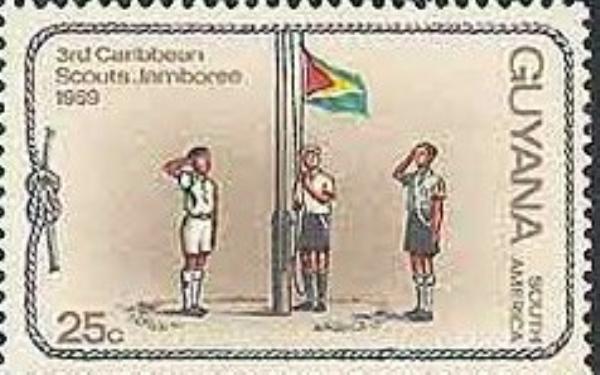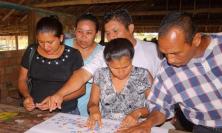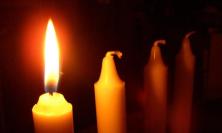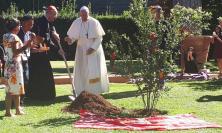On 14 July 1979, Jesuit priest, Fr Bernard Darke was killed as he photographed what ought to have been a peaceful demonstration in Georgetown, Guyana. Malcolm Rodrigues SJ describes the political unrest leading up to and following the granting of independence to British Guyana, which provided the circumstances for Fr Darke’s death. In a time of rigged elections and ‘constitutional dictatorship’, how did the Church promote peace and denounce injustice, particularly through the Catholic Standard newspaper?
The title of this essay is taken from a poem written by Guyana’s national poet, Martin Carter, on learning of the horrible death of Jesuit priest, Fr Bernard Darke on Saturday 14 July 1979. He begins the poem with a double oxymoron:
Not wanting to deny, I believed it.
Not wanting to believe it, I denied our Bastille Day.
The sentiment captured in these two opening lines of the poem reflects the shock and horror of the nation as citizens turned out in their thousands for Fr Darke’s burial on the afternoon of 25 July 1979.
Fr Bernard Darke
Bernard Darke came to Guyana in the summer of 1960 and after a brief stint in a parish, he moved to the Jesuit school, St Stanislaus College, in Georgetown. While he was not a brilliant teacher, he made his name as a disciplinarian, and was soon appointed Prefect of Discipline for the lower school. This title did not endear him to the students, but his talents in scouting and photography impressed them a great deal. His gift for photography was soon recognised by the Scouting Movement and one of his photographs, of the newly independent flag being hoisted during the Regional Jamboree, was used on one of the stamps issued to commemorate the Jamboree. Bernard also worked for the diocesan newspaper, the Catholic Standard, as its official photographer, but he placed one condition on this work – that he would not be asked to cover any political event.
However, while he was marking examination papers at the college on the morning of 14 July 1979, there was a peaceful demonstration passing the college and he recognised some of the people taking part. Taking his camera, he proceeded to the street to get some shots for the newspaper. As he drew near to the group, he saw the Standard’s Assistant Editor, Michael James, being attacked, so he took some photographs. As he turned to move off, he realised that the assailants were heading in his direction so he rapidly crossed the street, but slipped and fell on the grass verge. They then began to beat him but he held on to his beloved camera and only let go when one of them stabbed him in the lung with a military bayonet. Bernard died later that day at St Joseph’s Mercy hospital and was buried on 25 July, in the presence of his faithful scouts and the students of the college, the Anglican and the Catholic bishops, his fellow Jesuits and about six thousand mourners.
Why was Fr Darke killed: was he personally targeted by the killers? Was his killing related to his membership of the Catholic Church? To understand the circumstances leading up to his death, we need to go back the mid-sixties, when the issue of British Guyana’s independence was looming and there was a deepening of the racial tensions in the colony, between the descendents of the freed slaves and the descendants of the indentured labourers from India.
Rigged Elections
As early as 1961, the USA made it clear to the British government that they would not tolerate the granting of independence to British Guyana under Dr Cheddi Jagan, the leader of the popular Peoples Progressive Party (PPP) who won the 1961 election, given his strong Marxist leanings, so something had to be done to keep him out of power. This was achieved at the elections of 1964, in the midst of much political turmoil, by moving the electoral goal-posts from a First-Past-the-Post system to Proportional Representation. Hence, even though the PPP under Dr Jagan’s leadership won the majority of votes, the British Governor invited Mr Forbes Burnham, leader of the Peoples National Congress (PNC), supported by Mr Peter D’Aguiar, leader of a small anti-communist party, the United Force (UF), to form a government. This act was later referred to by the people as ‘constitutional rigging’. Consequently, independence from Britain was granted on 26 May 1966 with the office of Prime Minister held by Mr Burnham who, by his systematic rigging of elections to keep Mr Jagan out of power for the next 28 years, reduced the socio-political-moral life of the country to ruins and undermined confidence in the entire political system. With the backing of the UK and USA governments, Mr Burnham used the following tactics to keep himself in power.
In the 1968 elections, he removed the electoral process from under the umbrella of the Independent Elections Commission and placed it under the Ministry of Home Affairs. He also used his majority in Parliament to pass legislation allowing overseas voting and permitting a wider use of the proxy vote. Thus, of the 36,000 overseas votes cast, the PNC won 34,000, while the PPP and the disgraced UF (which had been ditched as an alliance partner in 1966) shared the remaining 2000 votes. Not surprisingly, the PNC won the elections with a much improved margin over the PPP.
Burnham changed the country’s independence status to that of a Republic within the Commonwealth on 23 February 1970, and in the 1973 elections he ordered the army to remove all the ballot boxes from the polling stations after the close of the voting period and to take them to the Army HQ in Georgetown for the votes to be counted. The result was an astonishing land-slide victory for the PNC, which reduced the parliamentary opposition to insignificance. The Catholic Standard headline read: ‘Fairy Tale Elections’ and Bishop Benedict Singh, the Catholic Bishop in Guyana was called in by Mr Burnham to explain the headline. Subsequently, the editor, Fr Harold Wong was removed, and the newspaper reverted to being a diocesan bulletin of religious news.
With the country now called ‘The Co-operative Socialist Republic of Guyana’, Mr Burnham saw no reason why he should not be the next President of the Republic, and so had legislation passed for a new constitution to be drafted and a referendum to be held in 1978 for the people to decide on the change of the constitution.
Given the organised and vibrant broad-based political and social boycott, the referendum of 1978 was drastically rigged through the recycling of pliant PNC voters from polling station to polling station. Those who monitored the voter turn-out estimated that only between 10% and 14% of registered voters actually voted. The Catholic Standard, under a new editor, Fr Andrew Morrison, had by then returned to its role of commentating on the politics of the day and carried regular reports and comments on the voting process. One particular editorial commented on the choice of icons on the ballot paper – a house represented the ‘Yes’ vote and a rat, the ‘No’ vote. The editor considered the rat an insulting symbol for the majority who did not want to change the constitution. The Catholic Standard decided to publish a single broad sheet featuring a cuddly mouse holding a cricket bat with the words ‘boycott’ written on it. That issue sold out by the close of voting. In the end, the vote for the ‘house’ was overwhelming, reported the government newspaper, and the ‘rat’ went in hiding. As could be expected, the regime was not pleased and the government press, which printed the Standard, refused to print any further editions.
Mr Burnham then set December 1980 as the voting day to elect the party whose presidential candidate would assume the Presidency of the Republic. At this stage of the struggle, Bishop Singh issued a letter to be read in all churches reassuring the faithful that they would not be shirking their civic responsibility if they supported the boycott of the planned elections. He pointed out that grave doubt had been cast on the honesty of the procedures which governed the elections of 1968 and 1973. He also pointed out that these elections were the first to be held under the new constitution, the very legality and morality of which was questioned; many citizens had rejected the integrity of the referendum preceding the constitution.
The ruling PNC party responded by desecrating the Catholic church in the town of Wismar, by removing a picture of Jesus from the wall and pasting over it one of Mr Burnham.
The report of the International Observer Team, led by Lord Avebury, then Secretary of the UK Parliamentary Human Rights Group, on these elections confirmed the fear expressed by the bishop in his pastoral letter. The report stated: ‘The worst fears of the Guyanese people regarding the violation of the electoral process have been confirmed.’
The ‘Paramountcy of the Party’
Rigging of elections was only part of a deeper philosophy of control and power, which Mr Burnham cherished. In addition to the measures employed to secure his own authority, Mr Burnham also took steps to ensure that the PNC exerted its influence on the everyday lives of the people.
Very early on after independence, he bought out two independent newspapers, the Guyana Graphic and the Argosy, and by 1974 he had gained control of all the major print publications, merging them into the Daily and Sunday Chronicles. This had left the small Catholic Standard as the only independent newspaper.
In 1978, the radio station, Guyana Broadcasting Service (GBS) was taken over by Burnham, and by 1979 he had bought out Radio Demerara, and merged the two radio stations into GBS1 and 2. Since there were no TV stations at the time, by the end of the 70s the PNC controlled all of the media in Guyana, and the Chronicle became a party rag, much despised by the people.
In 1976, the PNC party, to close its Congress which was held at Sophia, issued a document known as the Sophia Declaration, which stated clearly that the PNC party is paramount to all the institutions of the state. The party coined the phrase, ‘paramountcy of the party’ to express the extent of Mr Burnham’s control over the people. That same year, Mr Burnham nationalised both the bauxite and sugar industries, and took control of all education from nursery to university level. As one person expressed, what had happened through all the nationalisation was that Burnham had at least two hands in every home, since he controlled the two major industries, all the schools, the Customs & Excise Department, the courts, the police and the army. He was entitled to wear a Commissioner of Police uniform, the attire of a General of the Guyanese Army, and some spread rumours that he even had possession of the skirt and blouse of the Women’s Revolutionary Socialist Movement...
All this was clearly done within the terms of the constitution, so many saw his regime as a ‘constitutional dictatorship’. The people did not endure all of this passively, but they rebelled in various ways and found creative means of dealing with the political stranglehold; although some paid for this with their lives.
Faith and Justice in Action
During the early 1960s, the Church had sided with the anti-communist movement against Cheddi Jagan’s PPP, and was instrumental in the establishment of the right-wing UF which, in initially allying itself to Burnham, started the spiral into dictatorship and a trail of suffering for its people. But the Spirit does not stop working when we make mistakes or bad judgments, and so a new wind began to blow with the closing of the Second Vatican Council in 1965 and the publication of Pope Paul VI’s encyclical letter, Populorum Progressio (‘On the Progress of Peoples’) in 1967. The Pope’s treatment of the theme of integral development was a springboard for many a discussion on the meaning of development and targeted the misunderstandings of those who would restrict development to the level of economic development. The encyclical also inspired concrete action in favour of those who were struggling for free and fair elections and for a more open society. In fact, Bishop Singh and Bishop Randolph George, the Anglican bishop of Guyana, issued important statements on the rights of the people to work, to a just wage, to choose a government of their choice and to the opportunity to join a trade union of their choice. Both bishops were attacked for their positions, and Bishop George was taken to court for irregularities in the elections of the Diocesan Council. Bishop Singh had his premises picketed by PNC activists shouting and demanding that two priests, Frs Morrison and Rodrigues, be sent home – until someone passing in a car told them that both gentlemen were born in Guyana.
Pressure was also brought to bear on the Catholic Standard, first by denying it a license to import news-print, and then, in the week of the infamous ‘referendum-to-end-all-referenda’ in 1978, refusing to print the newspaper. Fr Morrison was also vilified as a ‘cassock obscenity’, but such an attack was like water off a duck’s back.
The message delivered explicitly and regularly by the Catholic Standard was that, as Christians, we are called to defend the fundamental rights of people and to work together to find a peaceful path to true human development. Racial discrimination was condemned and appeals were made to the two major racial groups to refuse to be manipulated in any way which could lead to violence or disrespect for others or their property. This was underscored as attacks began to be made by government activists on the market stalls of the Indo-Guyanese in Georgetown. Priests and nuns were arrested while taking part in peaceful solidarity marches for fair-and-free elections.
The last budget of the PNC in 1991 became known as the ‘Crucifixion Budget’ and provoked wide protests across racial lines. Some women of the cathedral parish got hold of a six foot cross and marched to the parliament to join the demonstrations, and created a religious space which was soon filled by about three hundred people of all ages, including students from the University of Guyana. The police attempted to close this sacred space only to find that as they approached the crowd someone reminded them that they were standing in the shadow of the cross – they promptly retreated, and the cross later left under the care of the students to emerge on another occasion.
Throughout the PNC’s reign, the Church was targeted by party activists. Hence the attack on that fatal morning of 14 July 1979, which resulted in the death of Fr Bernard Darke, whose anniversary provides the occasion for this article, attacked because he was recognised as a member of the Church. Moreover, it was later revealed that Bernard’s death was a case of mistaken identity: the attackers, members of the dreaded group known as the ‘House of Israel’, had thought that he was Fr Andrew Morrison, editor of the Catholic Standard. This fact was related to Fr Morrison by the leader of the ‘House of Israel’, who gave an interview to the editor from his prison cell. Subsequently, Fr Morrison publicly forgave the leader, Rabbi George Washington, for his part in the killing of Fr Darke and the attacks on the Church.
Free and Fair Elections
Mr Burnham’s rule as President of the Cooperative Socialist Republic was short, as he died while undergoing an operation on his throat in 1985. The same year, elections were held and Mr Desmond Hoyte succeeded Mr Burnham in yet another fraudulent election.
With the fall of the Berlin Wall in 1989, however, the USA, through former President Carter, began to put pressure on the Hoyte regime to return to fair and free elections. With the local opposition and civic groups adding to the pressure, Mr Hoyte was eventually forced to accept a package of reform which included:
· the establishment of an independent Elections Commission;
· the counting of the votes at the place where they are cast in the presence of delegates of all the contesting parties;
· the monitoring of the elections by both international and local observers.
Elections were originally slated for 1990, but when the local observer group, the Electoral Assistance Bureau (EAB) conducted a sample test of the electoral list, they found that it was about 35% flawed. The opposition parties refused to contest the elections using this list, and demanded a new voters’ list be compiled under the vigilance of the parties contesting the elections.
The list was not completed until 1992 and the elections were held with threats of violence by PNC activists. In fact, on polling day, they stormed the office of the Elections Commission, which both President Carter and the US Ambassador were visiting at the time; President Carter had to phone Mr Hoyte and ask him to call off his supporters.
The PPP won the elections and Dr Cheddi Jagan, at his low-key swearing-in ceremony at State House, thanked all his supporters and all who worked and struggled over the years for a return to fair and free elections; referring to his book, The West on Trial, he reminded the audience what he wrote in the final line: ‘History and time are on my side’. ‘Today’, he said,’ I stand vindicated.’
Looking to the future
While the presidency of Dr Jagan and the collapse of the communist bloc opened up new avenues for a greater type of participatory democracy, the deep racial divide and suspicion put a brake on this endeavour. In fact, as we prepare for the regional and general elections in 2011, there have already emerged in the local press statements of a political nature, which are appealing to racial divisions rather than to the issues. Faced with this challenge, there is talk of organising a combined coalition of some opposition parties, along with civilians who are not politically aligned, into a political party to challenge the present government's attempt to win a fourth term in office.
Whatever the outcome of these elections, the Jesuits will work as far as possible with the elected government to serve the people, especially the indigenous peoples, with whom we have been working for just under 103 years. We will also do our best to promote peace and racial tolerance especially in the lead up to the elections, using the Catholic Standard, which Fr Bernard Darke served so faithfully, and also make the theme of peace and non-violence an integral part of our preaching.
Fr Malcolm Rodrigues SJ is Superior of the Jesuit community at Arrupe House, Georgetown.
The Jesuits in Guyana
Catholic Standard
'Darke's camera mystery solved after thirty five years' - read the story on the website of the Jesuits in Britain






